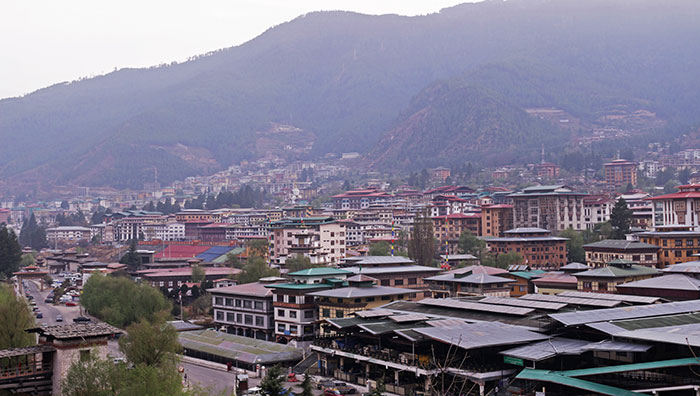Following shortcomings and lack of coordination between agencies in the implementation of Thimphu Structural Plan (TSP), the plan is now being reviewed, 18 years after its implementation.
The TSP 2002-2027 is a long-term project spanning a period of 25 years and considered a ‘living document’ to ensure proper and efficient implementation of the plan. The plan, according to the document, was prepared based on the principles of intelligent urbanism (PIU).
However, the reality of settlements that have come up in Thimphu as a result of the plan has often raised questions over what went wrong with the visions or the structural plan.
Despite the plan requiring timely review and updating, the TSP has not been reviewed even once since its implementation. Without the review, the planning has led to deviations from the original intent of the plan.
The performance audit report on urban planning and development in Thimphu throm (2019) pointed out that there was a lack of clarity and disagreements as per correspondence between the agencies, for which agency (works and human settlement ministry or Thimphu Thromde) is responsible for carrying out the review. “In the process, it never happened.”
However, a member from the review team said that MoWHS and thromde started the review last year. The review will be for two years in two phases.
The review was initially planned to complete in June next year, but given the lockdown due to the pandemic, the review period was disrupted.
“The review wants to make sure and find what went wrong, so we might have to extend the completion,” an official said. “It may not change what has already gone wrong, but it might be able to do something to stop further damages to the plan.”
It was realised that the concepts in the TSP were conceived on inadequate data and land records since some of the major challenges while implementing TSP were land record updating, changes in plan, legal litigations on certain methods of planning and development, disagreement with landowners, and funding issues.
The official said that the ministry’s Strategic Environment Review 2017 had also strongly suggested the review of TSP and this review would help understand the real issues that are prevalent.
The team will collect issues and geodata like population density, kind of people living in a particular area, landscape, social amenities needed, and traffic patterns in the first phase.
“While doing the review, we realised that there was a lack of data and the data collected when TSP was first made were sketchy. So, it’s important we first have detailed and robust data that will guide any agencies in the planning especially in terms of how settlements come out,” the team member said.
The official added that the ongoing review also showed that lack of data was one of the issues that lacked proper implementation of TSP over the years. “With lack of coordination among agencies, the review and data will bring in all agencies to come together before implementing any plans.”
For instance, if one of the ministries has a strategy to enhance transportation, the ministry must work with relevant agencies to come up with the plan, which is absent currently.
Without the review, the audit report had also pointed out that it has a significant impact on the whole implementation process of TSP. “This oversight has made a review of the implementation process now more difficult with lack of clarity between changes that were necessary and changes that worked against the sanctity of the whole plan.”
In the second phase of the review, all data will be analysed that would reveal what and where interventions are required, engage people to know their perspectives to get views and specific needs in the area, and plans would be made accordingly.
The team has already talked with about 60 agencies to know about different policies in place and such involvement is expected to help the team incorporate details with TSP. Analysing data will also help agencies to ensure that any plans, henceforth, match the TSP.
One of the findings from the audit report had also pointed out that having too many legislations and policy documents, which were adopted over the years and are not consolidated, was learnt to be one of the reasons for creating confusion and hindering the implementation of the TSP.
Once the review completes, the draft would be presented to the Thromde tshogde and after which a committee within the ministry will approve the review. Thimphu will then have a new TSP to implement.
Although moratorium is necessary while such review takes place, an official said that pandemic came as a blessing, whereby many constructions are on halt and a moratorium was not needed. “Moreover, if we issue a moratorium, it would disturb the already affected economy of the country.”
The review has also realised that there is a need for a body where representatives from different agencies would coordinate to develop and implement TSP.
The last planning audit was carried out in 2008 in Thimphu City Corporation. In the last 11 years, the ministry conducted no planning audit in Thimphu Thromde.
The TSP covers an area of 26sqkm with a 25-year implementation period and has 15 sectors (urban village) that are further broken up into 22 local areas each around 1km2 with 100- 400 plots.
With the review, the area would now increase to 35sqkm.
“A major issue appears to be a weak institutional capacity of Thimphu Thromde in terms of human resource capacity against the huge task of implementing the TSP besides carrying out its other mandates,” the audit report.
Yangchen C Rinzin


